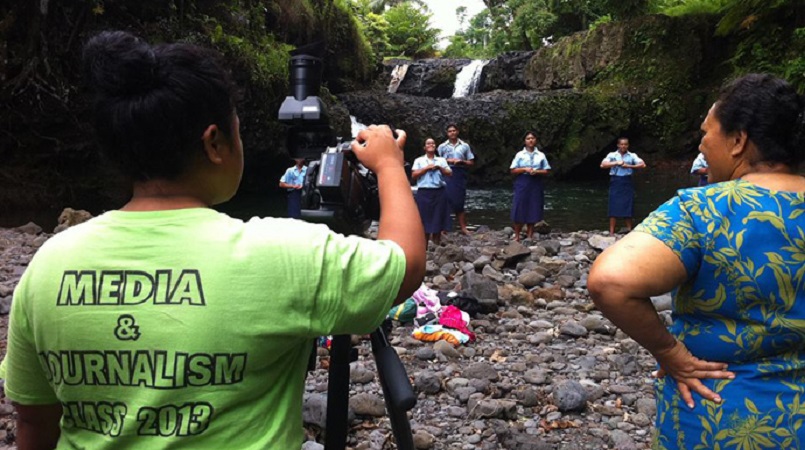
Exactly five days away from polling time, and the equal participation of women has been one of the most talked topics in the media through newspapers and televisions.
On Friday, February 26, UN Women and UNDP launched a special award for journalists who showed gender balanced and sensitive reporting on women participation.
The awards are through a partnership with the National University of Samoa, under their Media and Journalism School.
They will recognise journalists and media outlets for coverage that is not only balanced, but that also challenges gender stereotypes and raises awareness of the importance of women’s political participation and representation.
The competition will consider individual entries in the broadcast and print categories published between 1 November 2015 and 20 March 2016, as well as the overall coverage of media outlets during that time.
Members of the public are also invited to nominate specific examples of gender sensitive journalism.
UN Women’s Country Programme Coordinator in Samoa, Suisala Mele Maualaivao, says the awards are an opportunity not only to recognise efforts made by the media so far, but also to encourage long-term change.
“The media can and should play a powerful role in changing attitudes towards women in leadership and decision-making roles, and we have already seen examples in the lead-up to the election that show the media in Samoa is taking this role seriously,” she says.
“We want to commend and support these efforts but also encourage the media to take it to the next level.”
IPPWS is a joint programme between UN Women and UNDP, in partnership with the Government of Samoa, with funding from the Australian Government. In the lead-up to the elections the programme has been working with aspiring women candidates and the media to build on their skills and confidence, while also working with local partners to raise awareness in the communities about the importance of women’s political participation and representation.
Gatoloai Tili Afamasaga, IPPWS Coordinator, says the increased profile of women candidates, as well as the dramatic increase in the number of women standing for election, is encouraging but the work doesn’t end once the results are tallied.
“While politics is the most high profile example, leadership and decision-making processes continue at every level of society and it is essential that women are involved. We need the media’s continued support to ensure that happens and to keep gender equality on the public agenda.”
